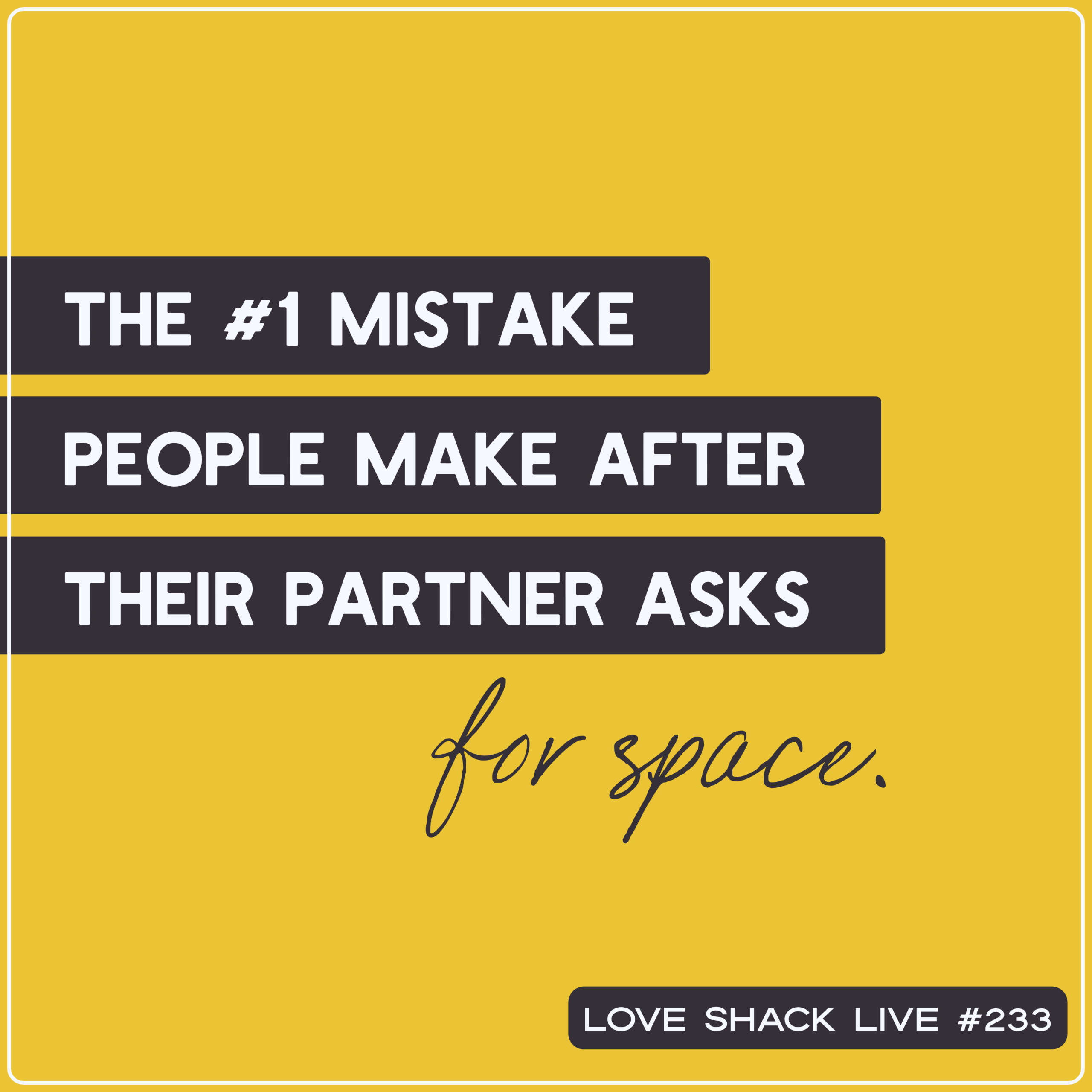Have you ever said yes just to dodge an argument? You take it on, you promise you will change, you nod along. Meanwhile your gut is whispering, “I can’t keep doing this.” That is not weakness. That is an agreement that needs a closer look.
This post expands on part two of our two-episode Better Love Club series. Part one was about how connection is actually created. This one is about what quietly blocks it: the agreements that look cooperative on the outside but feel heavy, fake, and exhausting on the inside. Quick note for our BLC members: all student voices were removed in the replay to protect privacy. And yes, Tom and I really are in Italy scouting the venue for our 2026 couples retreat.
What Is an Unhealthy Agreement?
Unhealthy agreements are the quiet deals you make to keep things calm:
- “I will not bring up money anymore.”
- “I will text first every time so we do not drift.”
- “I will say yes to intimacy even when I do not feel close.”
On paper they look helpful. In your body they feel like resentment, shutdown, and self-betrayal. The litmus test is simple: Does this agreement help me show up as my real self, or does it require me to disappear a little more each week?
The Hidden Cost: Why “Keeping the Peace” Breaks Connection
Connection does not come from compliance. It comes from truth that is witnessed, not fixed. When you agree to what is not true for you, three things usually happen:
- Self-punishment kicks in. When we break agreements with ourselves, we pay the steepest price, even if we project it onto our partner.
- Resentment builds. The longer you violate your own integrity, the more you will feel irritated by everything they do.
- The canyon widens. You are “checking boxes,” but the invisible distance between you grows. On the outside it is “fine.” Inside, it is not.
Why Smart People Make These Agreements
- Fear of conflict. “If I bring this up, it will explode.”
- Obligation myths. “Good partners do not change the deal.”
- Logical illusions. The story in your head feels so reasonable that you ignore what your body keeps reporting.
If you recognize yourself in any of that, you are not broken. You are human.
The Reframe: Flexibility Creates Safety, Not Chaos
Many of us think flexibility will destroy commitment. In practice, flexibility is what keeps commitment alive. Relationships thrive when both people can update agreements as they learn more about themselves, each other, and the season they are in.
It is not about what you do. It is about how you feel while you do it.
The same action can feel generous or grinding depending on whether it is aligned.
The Sweet Spot: “I Reveal. You Witness.”
This is the heartbeat of connection:
- I reveal what is real for me right now, without performance or persuasion.
- You witness with no fixing and no judging, simply presence. Then we switch. That back and forth creates enough safety to co-create new agreements that actually fit.
You may not solve anything in the moment. If you can routinely reach this sweet spot, you will not want to run. You will want to stay.
How to Tell When an Agreement Needs to Change
Use this quick scan. If two or more show up, it is time to revisit the deal.
- You feel dread or numbness beforehand.
- You are doing the thing but quietly keeping score.
- You need more recovery time afterward than the thing itself took.
- You notice spikes of irritability or contempt about unrelated topics.
- Your body says “no” while your mouth says “sure.”
Renegotiate Without a Blowup: Step by Step
1) Regulate first.
Three slow breaths. Feel your feet. Name one feeling to yourself.
2) Own your part.
“I said yes because I wanted things to feel easier. I am seeing that it is not sustainable for me.”
3) Say one true sentence.
Keep it short and concrete.
“I cannot keep agreeing to intimacy when I do not feel close.”
“Sunday night money talks leave me shut down on Mondays.”
4) Make a clear ask with options.
Offer one or two workable alternatives.
“I can do money talks every other Tuesday for 30 minutes.”
“I want closeness. I need non-sexual touch and a check-in first.”
5) Invite their truth.
“What is true for you about this? I will listen, no fixing.”
6) Set a review date.
“Let’s try this for two weeks and check in.”
Language You Can Borrow
If you have been over-agreeing:
“I have been saying yes to keep the peace, and it is quietly costing me. I do not want that to leak out as resentment. I want to be honest and stay close.”
If you need to reverse a yes:
“I said yes last week and I am realizing I overextended. I am sorry for the zigzag. Here is a version I can stand behind.”
If you fear it will blow up:
“I am not trying to win or make you wrong. I am trying to be real so we can be close. Can you just witness me for two minutes before we respond?”
One true sentence to replace the tired yes:
“I want to stay connected, and I can only do that if I am honest about what I can give.”
When Your Partner Will Not Engage
That is real, and it hurts. You still have choices that return you to integrity:
- Lower the stakes and shorten the window. Try a 10 minute check-in with one small change.
- Model witnessing. Receive their truth first, fully. Often they will mirror it back.
- Protect your baseline. Sleep, food, movement, and support. Self-abandonment will not make them safer.
- Decide your minimums. Know the non-negotiables that keep you intact.
Self-Check: Are You Breaking Agreements With Yourself?
Ask yourself tonight:
- What did I quietly agree to that created a pit in my stomach?
- Where am I hoping they will notice I am unhappy without me saying anything?
- What one sentence do I need to say to come back to myself?
Write it. Say it in the mirror. Then share it.
Ready to Learn What to Say (and Not Say) During Space?
If your partner has asked for space, communication can feel like walking a tightrope. What you say (or don’t say) can make the difference between rebuilding connection or widening the gap.
You have two ways to join me for my “What to Say (and Not Say) During Space” masterclass:
🎥 Watch On Demand Anytime
Get instant access to the 90-minute replay, plus scripts and tools you can use right away.
👉 Watch On Demand ($39): https://stacibartley.com/on-demand-masterclass
📅 Join Me Live: October 18 at 12:00 PM PT
Experience the masterclass live and ask your questions directly. You’ll also get lifetime replay access.
👉 Save Your Seat for the Live Session: https://stacibartley.com/live-masterclass
Try This Today
- Pick one agreement that feels heavy.
- Write your one true sentence about it.
- Share it with your partner using the witnessing frame:
- “Can I share for two minutes while you just listen? Then I will do the same for you.”
Small, honest, repeatable.
Love is not sustained by rigid promises that we grip. It is sustained by two people willing to tell the truth and witness each other, again and again. Stop saying the exhausted yes. Say one true sentence instead. That is where connection starts to breathe again.
P.S. If you missed part one on how connection is created, cue it up next. These two pieces belong together.




